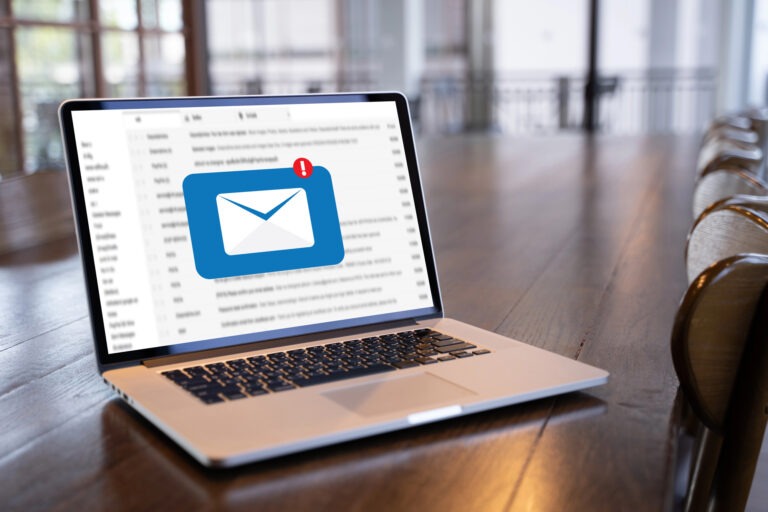Today’s been a good day so far. Its always nice to hear the masters talk about the future of search, and talk about tools we can use to better our systems. I’m excited to hear what the panelists have to say about people who start the purchasing process online and finish it with traditional methods. One of the biggest gaps I see with our clients is the inability to track this, I hope there is some innovation here. It may be as easy as asking someone in your store how they heard about you. If you’re not curious, you should be!!!
Panelists:
Dan Quinn, Research in Motion
Michelle Stern, iProspect
Ken Robbins, Response Mine Interactive
What are some solid techniques to find out your true ROI?
Michelle was up first, she reminded us how important it is to track offline conversions to keep the integrity of the campaign. Truly, you’re taking a shot in the dark if you don’t try to figure out how your PPC is tying in with the rest of your efforts. Argh here we go on the PPC already, gimmie some organic love people!!! Stay focused Angie…you can do it….
She went over the case study of WTH, World Travel Holders. WTH’s objective was to generate as many cruise registrations as possible, either online booking or phone bookings. How many were phone registrations? 90%. ei yi yi. So how do you justify the PPC campaign then? How do you track those phone conversions????
Based on WTH’s booking process and the technology available they developed a phone tracking system that would incorporate with the PPC ads.
Online tracking cycle went as follows:
search —> click PPC ad —> cookie placed —> user directed to website —> user books cruise —> confirmation page with tracking pixel fires —>
and after the purchase it will tell the keywords in analytics, which were taken into high account. Did I hear that right??? WTF is a Pixel fire???? Sometimes I hate my experienced cluelessness. Anyway,
Phone tracking went as follows:
search —> searcher clicks ppc ad —> cookie placed —> user directed to website —> user calls and books —> user is sent confirmation email (critical!) —> user clicks on email and sent to confirmation page where pixel fires. Again, it must be important. huh.
And of course the keyword responsible can be tracked, so it shows true ROI through phone bookings!
Why do this?
- they could use the 800 number on site
- minimal human error with data entry
- ability to track revenue to the keyword, literally to the penny
More about the email confirmation. You have to motivate users to click the confirm button, make it say confirm accuracy of your info. Only 50% would confirm when she first started the campaign, but then refining the email and text upped that number to 80%. How did she get from 50% to 80%?
- Move confirm button to the top
- Indicate in title of email further action is required
- Offer incentives if necessary
What did the phone tracking system do to WTH’s bottom line? Increase ROI by 16% is what it did!
What key considerations should you look at when choosing a system?
Evaluate the offline sources of your leads/sales
Then, create 3 buckets:
- Positive ROI
- Negative ROI
- And the ??? bucket – it needs more data
Look at the positive ROI keywords. If one of your ads is #3 and producing, see what moving it to #2 or #1 does.
Look at negative ROI keywords. If conversion rate is low, then look at your ad copy and landing page text. That was a good slide, presentation’s not uploaded yet so I’ll try to remember to get you guys the graph.
What about the question bucket? Considerations: conversion rate, number of clicks, number of conversions. Find your hidden gems. Test these keywords and move them to prominent places and then quickly rule on if they are profitable or not.
Make better, smarter, more informed decisions and you’ll win the ROI game.
Next up, Dan Quinn with Research in Motion started by surveying the room.
Who here is representing agencies? (bout half)
Who here is on the client side? (bout half) interesting.
On the client side, he asked who thinks they have the budget to do everything they want learned from here? One person. Sorry guys, SEO isn’t cheap is it?!
Another good slide I don’t have access to, speakers, please upload your presentations!!!! Search works best if leveraged across media. It was a Circle of Advertising, Partner marketing, agency partners, web team, corporate marketing and how it all goes together.
Take a central approach to search. Look to better manage and influence your programs.
Back to our Awareness – interest – consider – purchase chart. This concept is still the same, fill that funnel! Sometimes its more logical to support your partners rather than compete with them. Sometimes you don’t need to own the whole funnel, you make better money sharing it.
Encourage participation by co-funding. Team up! Work with your national and reseller partners…share info, optimize together, learn together, grow together. Sometimes things you could not afford on your own could be paid for with a team of sponsors.
A few thoughts:
Ensure you harvest insights from search
Last up we had Ken Robbins with Response Mine. They have a lot of retailers as clients and many have call centers, stores, and online campaigns.
Proven Point: online marketing drives offline buying. period.
Case study: Rooms to Go, they are a speciality furniture retailer with 150 showrooms. They have a huge TV spend. They have 3 different websites, all that they market.
Online Challenges:
Furniture – expensive, considered purchase (you can’t touch and feel online)
Objective:
Use controlled online media test to drive in store sales.
Execution:
- isolated markets – they picked 4 locations not all 150
- cut out noise – no r/w media during the test (yes, they stopped the print and TV ads)
- tracked closely. Used market specific coupons. Manager, salespeople training. (aka don’t let your salespeople copy the coupon and give it to everyone like Matt Doss does for appetizers at a restaurant I will not name, lol)
- established definite time period
- creative – coupons, landing pages designed to markets
- media – saturated the web using all google tactics.
They used Google to check and track. They changed all ad copy, updated the local business ads, geo-targets, everything that Google is integrated with. Really it was just Google, not even the whole breath of the search market.
Results:
- The 4 markets had higher sales
- 86% of sales occurred in stores themselves
- Overall return on ad spend – $7.50 (reasonable for this industry supposedly)
- 20% higher Average Order Value for coupon holders
What next:
Strategy rolled out annually
Measurement and Attribution
Direct Attribution – trackable coupons
And remember, offline marketing also drives online conversions too! Just look at all the people looking for girls gone wild, lol 🙂
Big Mistakes – I’ll try to get the slide. A couple were not having the same promotion, Call center discouraging 800#,comingling promotional campaigns – make sure metrics are separate
Good Practices – I’ll try to get that slide too. Here’s some bullets:
- starting and stopping on the same schedules
- having universal pricing
- agree to disagree internally. Its gonna happen, go with something
- if attribution is important isolate the market
- get vendors on board
- test for about 3 weeks, no more. You’ll see response or you wont.
Questions:
How did google local ads perform on your case studies? Search ads converted the best but they got more volume from the rest of the stuff they were doing.
Could you elaborate on the mechanism between the cookie and how to make the connection with the email confirmation and tracking code? The thank you page has a phone pixel there, and the ad has a separate pixel. Um ya, I’m so enlightened now.
Do you always need to black out other media advertisements for a true test? Not necessarily, but for sure the first time or two. Eventually evolving to a 360 degree campaign is best.
What are good tools for phone call tracking for small and medium businesses? There are vendors here who can do this, they will give keyword level reports. Coldsolds is good but businesses hate their real number isn’t on the ad they don’t want a dynamically generated one…hmmm…what to do??? Brand yourself or know your traffic????
How do I get the decision makers at the company to think that online traffic will go to brick and mortor stores? (go back to Measurement and Attribution slide) Show them case studies. Prove it with coupons.
Angie rant……I hate it that they have all this ROI tracking for PPC ads and organic is left out in the cold. Nobody here said anything about tracking natural results. WHO helps the people who EARN their way to the top better capitalize on that for more ROI???? HOW can I PROVE this to my clients? Google analytics has a decent start but I need quicker easier reports to give to clients. GAY. Impatiently waiting. I’m pist that its so hunky dorey in PPC land. Why do I do EVERYTHING the hard way? I am wearing my PPC – the Lazy Man’s SEO shirt tonight. Ok back to smiley Angie 🙂



